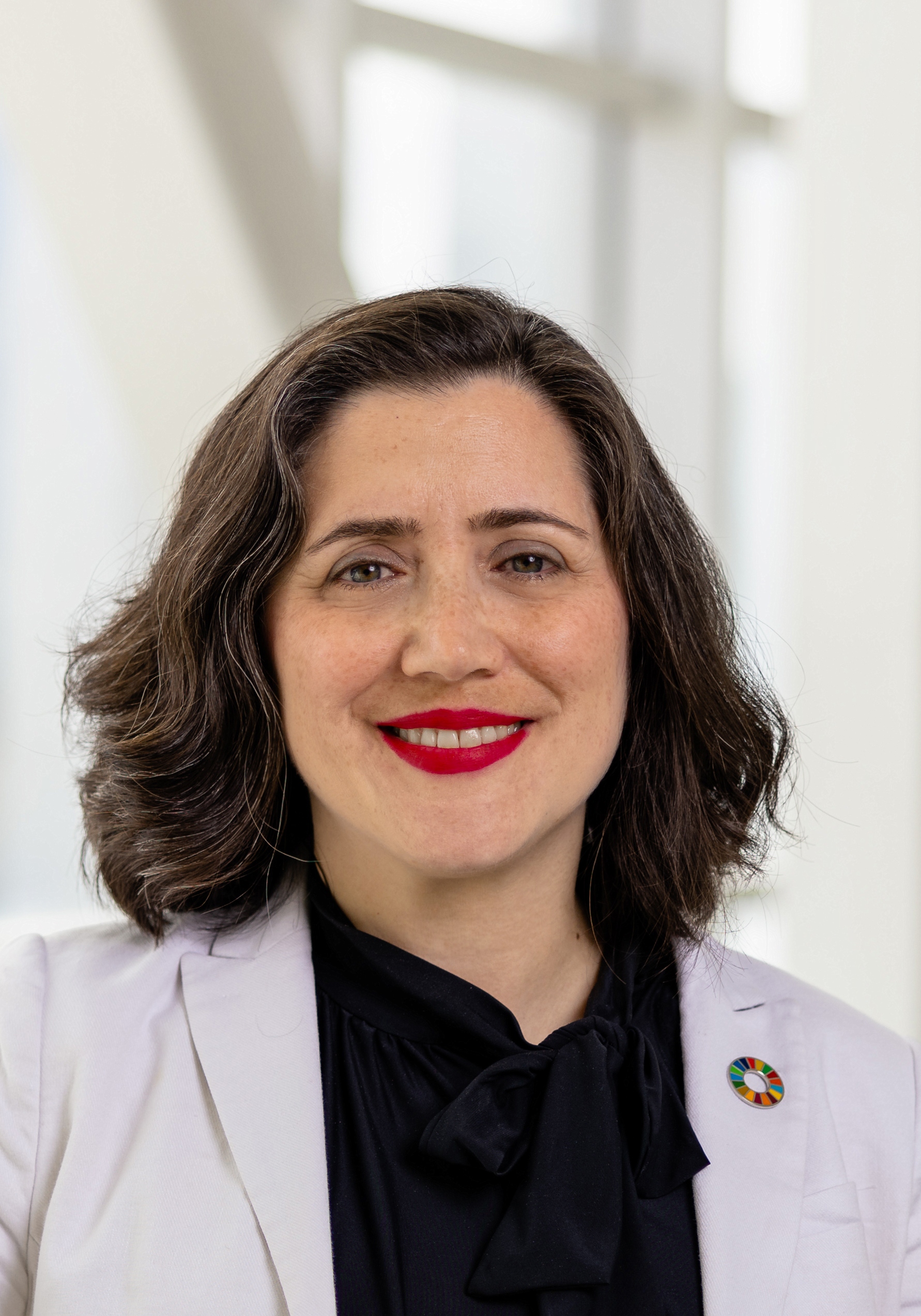Laleh Behjat
Calgary, Alberta
Position: Professor, NSERC Prairie Chair for Women in Science and Engineering
Organization: University of Calgary
Dr. Laleh Behjat is a Professor at the Department of Electrical and Software Engineering at the University of Calgary, and the NSERC Prairie Chair for Women in Science and Engineering. Her research focuses on three distinct areas: automating the design of digital integrated circuits, engineering education, and sustainable systems engineering. Dr. Behjat acted as an academic advisor for of Google Technical Development Guide and was a member of the Google’s Council on Computer Science Education. She has been an Associate Editor of the IEEE Transactions on Computer-Aided Design of Integrated Circuits, ACM Transactions on Design Automation of Electronic Systems, and Optimization in Engineering from Springer. Dr. Behjat is passionate about increasing the status of women in science, technology, engineering and mathematics (STEM). She received several awards, including Engineers Canada for the Support of Women in the Engineering Profession, the Association of Computing Machinery, the Special Interest Group in Design Automation Service Award, and the Killam Graduate Student Supervision and Mentorship Award. Her team, the Schulich Engineering Outreach Team, also received the ASTech Leadership Excellence in Science and Technology Public Awareness Award in 2017.
Areas of Expertise:
Language(s):
My Work
What I do:
As a professor at the University of Calgary, I lead internationally recognized research in electronic design automation, engineering education, and sustainable systems. I am currently the NSERC Prairie Chair for Women in Science and Engineering. In this capacity, I work with researchers across Canada to foster innovation through diversity. I have co-directed major initiatives, such as the Canadian Network on Information and Security and the WISE Planet program. My research includes over 100 peer-reviewed publications in top-tier journals and international recognition through awards like the Schulich Research Achievement Award and successes in ISPD competitions. As an educator, I have developed innovative, inclusive courses and supervised 80+ students, many of whom have won prestigious awards and secured impactful roles globally. I am passionate about fostering diversity in STEM. I have founded the WISE Planet program and spearheaded initiatives such as the Diversity Champions in Engineering Scholarship. Through leadership roles in academic and professional organizations, I champion equity, inclusion, and interdisciplinary collaboration to address global challenges.
Ask me about:
As a professor at the University of Calgary, I lead internationally recognized research spanning electronic design automation, engineering education, and sustainable systems. My systemic approach integrates technical innovation, cultural transformation, and sustainability, enabling impactful solutions to global challenges. I am deeply interested in how computers are made, from chip design to the entire life cycle, and how we can innovate for efficiency and reduced environmental impact. A significant focus of my work is fostering an inclusive and forward-thinking engineering culture. I believe that improving engineering practices requires embracing equity, diversity, and collaboration. Through initiatives like the NSERC Prairie Chair for Women in Science and Engineering, I train early-career professionals to be change agents in STEM, integrating leadership, equity, and innovation. Sustainability is at the core of my research and teaching. I work on designing systems that balance social foundations and planetary boundaries. From developing regenerative design tools to creating interactive learning experiences, I explore practical ways to address the wicked problems of our time. I welcome conversations about how we make computers, improve engineering culture, and design sustainable systems. My broad perspective connects technical rigour with a commitment to advancing humanity, making my work systemic and wide-ranging.
Why me:
I bring a unique and systemic perspective to complex challenges in electronic design automation, engineering education, and sustainable systems. My research bridges technical innovation, cultural transformation, and sustainability, offering audiences fresh insights into critical topics like how computers are made, improving engineering culture, and designing systems that respect both social and environmental boundaries. I am an engaging speaker with extensive experience delivering impactful talks at international conferences, industry events, and academic workshops. I was invited to speak at a side event during COP 28 in Dubai, where I shared insights on addressing equity issues related to transportation and energy transitions for a sustainable future. I have also presented at IEEE-sponsored summer schools and organized or participated panels featuring Nobel Laureates and global STEM leaders. Audiences choose me as a speaker because of my ability to: – Make complex topics accessible and inspiring. – Share innovative strategies for fostering inclusion and collaboration in STEM. – Offer actionable solutions for designing more sustainable and equitable systems. – Spark meaningful conversations on the future of technology, culture, and education. If you’re looking for a speaker who can blend technical expertise with a human-centred, forward-thinking approach, I would be honoured to contribute to your event.
Fun facts:
I read a book a week and always have a stack of recommendations ready—ranging from fiction to history to pschology and everything in between. I’m learning five languages simultaneously! It’s a challenge, and I love the challenge. I love collaborative projects because they help me learn a lot. During my undergraduate years, I was on the swimming varsity team. My coach called me computers because I was good at predicting the arrangement of swimmers in other teams, so we could increase our chances of winning as a team. These days, I spend more time at the poolside than in the lanes—serving as a stroke judge and supporting the next generation of swimmers. I believe these experiences reflect my love for learning and collaborating and my passion for staying connected to the communities and activities I cherish.
About Me
English proficiency: Read, Write, Speak
French proficiency: Read
Other Language(s): Persian
Title: Professor
Pronouns: She/Her/Hers
Gender: Female
Demographic: West Asian

